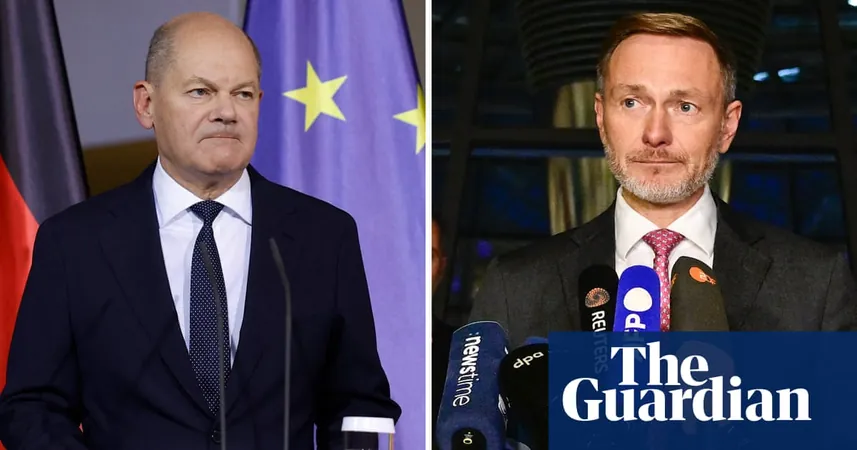
Netanyahu Sparks Controversy by Dismissing Defense Minister Amid Ongoing War
2024-11-06
Author: Ming
Netanyahu Dismisses Defense Minister
In a move that has triggered widespread outrage, Israeli Prime Minister Benjamin Netanyahu fired Defense Minister Yoav Gallant, a key figure in the government and an advocate for a ceasefire in the ongoing war in Gaza against Hamas. This decision comes as Israel is embroiled in one of its longest conflicts, following the deadly Hamas attack that claimed around 1,200 lives and took approximately 250 hostages on October 7, 2023.
Gallant's Stance
Gallant, who has held various prominent positions including that of a senior general in the Israel Defense Forces, has been critical of Netanyahu's hardline approach. Just days before his dismissal, Gallant expressed his belief that a ceasefire was essential for securing the release of hostages and averting further violence. He also advocated for mandatory military conscription for ultra-Orthodox Israelis, a notion that threatens the stability of Netanyahu's coalition government, which relies heavily on ultra-Orthodox parties.
Public Outrage
Following his dismissal, tens of thousands of Israelis protested against Netanyahu’s actions in major cities. Demonstrators described the firing as a severe political misstep that puts national security at risk. Columnists across Israel condemned the decision, labeling it reckless and politically motivated, suggesting it catered to Netanyahu's religious conservative constituents rather than the nation's interest.
Gallant's Response
In a televised address, Gallant pointed out that the firing stemmed from fundamental disagreements on national security strategies, particularly relating to proposed mandatory military service for ultra-Orthodox citizens, the urgent need for a ceasefire, and his push for an independent investigation into security lapses that led to the October 7 attacks.
Netanyahu's Strategic Moves
Netanyahu appears determined to consolidate his authority, pushing forward with his military strategy against both Hamas in Gaza and Hezbollah in Lebanon, despite escalating criticism from within his ranks and the public. The Israeli leader has promoted Israel Katz, an ally and former government minister, to take Gallant's place, which signals a likely continuation of Netanyahu's hardline tactics.
Political Implications
Political analysts suggest that Netanyahu’s dismissal of Gallant not only reflects internal strife within the Israeli ruling coalition but also a deeper struggle over the direction of military and foreign policy amid increasingly vocal public dissent. As protests grow and tensions mount, the ramifications of this dismissal could have lasting effects on both domestic stability and Israel's ongoing military strategy, particularly as it continues operations in Gaza and faces challenges in the West Bank and Lebanon.
Future Outlook
The conflicts in the region remain fraught, as both the Israeli government and Palestinian factions confront complex challenges. Gallant’s removal has opened an intense debate about Israel’s future path, reflecting a nation divided over security, governance, and the potential for lasting peace.


 Brasil (PT)
Brasil (PT)
 Canada (EN)
Canada (EN)
 Chile (ES)
Chile (ES)
 España (ES)
España (ES)
 France (FR)
France (FR)
 Hong Kong (EN)
Hong Kong (EN)
 Italia (IT)
Italia (IT)
 日本 (JA)
日本 (JA)
 Magyarország (HU)
Magyarország (HU)
 Norge (NO)
Norge (NO)
 Polska (PL)
Polska (PL)
 Schweiz (DE)
Schweiz (DE)
 Singapore (EN)
Singapore (EN)
 Sverige (SV)
Sverige (SV)
 Suomi (FI)
Suomi (FI)
 Türkiye (TR)
Türkiye (TR)